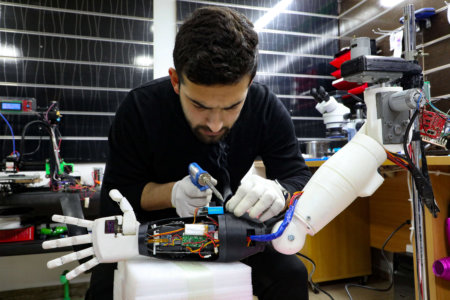
What are the advantages of studying in Canada for international students? Ask those who have been there and done that, and the list can seem endless.
Your experience will shape your life, whether you choose to study in one of the huge, bustling cities or on a small campus in a warm, tight-knit community. Studying here gives you access to the country’s four beautiful seasons, wide-open spaces, abundant wildlife, multicultural diversity, clean environment and incredible quality of life.
Three major cities — Toronto, Montreal, and Vancouver — are considered among the finest cities in the world for international students pursuing engineering in Canada, based on the country’s quality of education, lifestyle, and cost of living. While the quality of education and living standards in Canada are amongst the highest in the world, the cost of living and tuition fees for international students are generally lower than other countries.
Hosting nearly half a million international students, Canada produces a large number of engineering graduates each year. International engineering students in Canada have the best opportunities to study at colleges accredited by the Accreditation Board for Engineering and Technology (ABET).
Canadian universities are well-known for their outstanding research. Engineering majors like Mechanical, Electrical, and Electronics require students to complete numerous research projects, and international students have the opportunity to participate in exciting projects and experiments.
Many international students are hesitant to study engineering in Canada because they think it will be too expensive. Whatever your budget may be, you’ll find something just right for you. The cost might run anywhere from 7,000 Canadian dollars to CA$50,000 per year. As a foreign student, you should explore any financial aid programmes that those universities may provide. For qualified students, the schools may offer reduced tuition, payment plans, or even grants and scholarships.

Canadian colleges are affiliated to well-known companies and institutions at home and abroad to provide students with hands-on, real world experiences. Source: Alexis Huguet/AFP
Students will have the opportunity to do internships and research projects with renowned companies and thus boost up their career. Studying in one of the reputable colleges and universities in Canada would help students establish professional relations with experts in the field. Many are also affiliated to well-known companies and institutions at home and abroad. This allows you to develop innovative technology-based solutions that address the needs of an evolving global marketplace while gaining hands-on experience.
During their semesters, all international students in Canada have the chance to work up to 20 hours per week, and full-time during the summer and winter breaks. You will not need an additional work permission to work on campus or as an intern in any company because your study visa is sufficient to assist you in finding a part-time employment.
Canadian universities and colleges offer three major intakes for students: fall, winter and summer. The University of Toronto, University of Alberta, Carleton University, McMaster University, University of Ottawa and Ryerson University are some well-known institutions for studying engineering in Canada. Top engineering programmes offered include Civil Engineering; Electrical Engineering; Mechanical Engineering; Environmental Engineering; Biomedical Engineering; Materials and Mineral Engineering; and Manufacturing Engineering.










